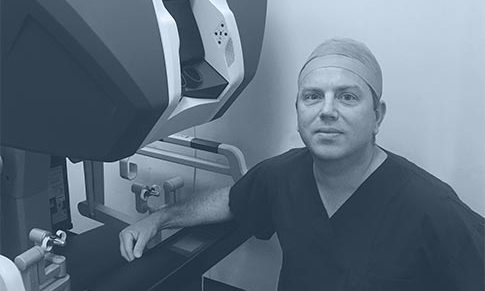
Colonoscopy
What is a colonoscopy?
A colonoscopy is a procedure to look at the inside of the bowel using a specially designed flexible telescope. It is usually performed to diagnose or treat conditions affecting the bowel. Most colonoscopies are performed on an outpatient basis.
Who performs a colonoscopy?
Most colonoscopies in Australia are performed by Gastroenterologists or General Surgeons. A conjoint committee for the recognition of training in gastrointestinal endoscopy (CCRTGE) has been established compromising members from the Gastroenterological Society of Australia (GESA), the Royal Australian College of Physicians (RACP) and the Royal Australian College of Surgeons (RACS). Full recognition and credentialing typically occurs in the context of an advanced training program. An endoscopist with CCRTGE accreditation should perform your colonoscopy.
Who needs a colonoscopy?
A colonoscopy is recommended as part of the National Bowel Cancer Screening program (NBCSP) if you have a positive faecal occult blood test (FOBT). It is important to note that only 3% of patients with a positive FOBT will have a colorectal cancer. Other indications for colonoscopy include:
- Unexplained abdominal complaints
- Rectal bleeding or change in bowel habit
- Suspected or follow up of inflammatory bowel disease
- Following an episode of diverticulitis
- Follow up after personal history of polyps or bowel cancer
- Family history of polyps or bowel cancer.
How is a colonoscopy performed?
The bowel is first thoroughly cleansed with “bowel preparation”. The quality of the colonoscopy is related to how well the bowel has been cleansed. Most of the time, sedation anaesthesia (“twilight”) is used during the procedure. The colonoscope is inserted through the anus into the rectum and then the colon. Often the last part of the small bowel (terminal ileum) will be examined. The endoscopist then carefully withdraws the colonoscope, removing polyps and taking biopsies as required. The entire procedure usually takes less than an hour. Following the procedure, slight discomfort may be present which is usually relieved after passing wind.
What is a polypectomy?
A polyp is an abnormal growth extending from the lining of the bowel. Around half of the population are likely to develop polyps. They do not usually cause symptoms but left untreated a small number will develop into bowel cancer. This usually takes many years. Removing the polyp prevents it from becoming a cancer and is an important way of protecting you from developing bowel cancer. Most polyps can be removed at the time of your initial colonoscopy. Sometimes, very large or complicated polyps may need a second procedure to be removed via either a colonoscopy (EMR – endoscopic mucosal resection) or sometimes surgically if the polyp is in the rectum (TAMIS – trans-anal minimally invasive surgery). Very large polyps have a risk of cancer in them and surgery is often recommended if cancer is detected.
What are the risks of a colonoscopy?
A colonoscopy is a very accurate and safe way to examine the lining of the bowel, remove polyps and take biopsies. There is a very small risk of missing a cancer (less than 1%). Bleeding from a biopsy or polypectomy site is uncommon and usually stops without any further intervention. Perforation of the colon (tear in the bowel) is a very rare complication that may require surgery to repair.
What is a colorectal surgeon?
A colorectal surgeon is an expert in the surgical and non-surgical treatment of colon and rectal conditions. In Australia, a colorectal surgeon has completed general surgical training to be a specialist general surgeon (FRACS). A minimum of 2 years of clinical post-fellowship training is then undertaken in high volume accredited institutions through the Colorectal Surgical Society of Australia and New Zealand (CSSANZ). There is also a research requirement and a written examination on colon and rectal conditions. An equivalent domestic or international experience may qualify a surgeon for CSSANZ accreditation.